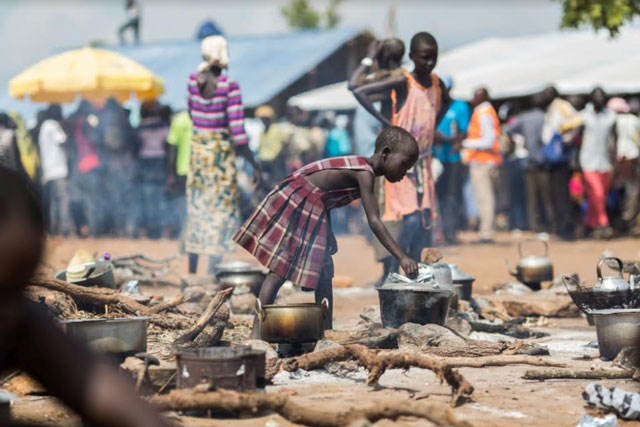
Kampala, Uganda | THE INDEPENDENT | Despite the deliberate effort by the government to increase electricity generation, distribution and extend cooking gas cylinders, most Ugandan households are still using either firewood or charcoal for cooking, a survey by Twaweza, a nongovernmental organization working in East Africa has found.
In their Sauti za Wananchi project in which views of Ugandans on different issues are collected, Twaweza reports that 98% of homes reported using either firewood or charcoal or both to cook. Very few households use electricity, gas or kerosene.
Those who reported using them said it was mostly as a secondary source of energy. “Most rural households (92%) use firewood while an almost equal number of urban households use either firewood (46%) or charcoal (51%) as their main energy source.
Charcoal is the main energy source mostly for urban households (51%), particularly those in Kampala (78%). Similarly, very few households in Uganda own a gas or electric stove. Across the whole country, just one out of twenty households (4%) own a gas or electric stove, rising to one out of ten (11%) in urban areas. Ownership of such stoves is very closely linked to wealth, with ownership rates considerably higher among wealthier households (16%),” the report noted.
The report also notes with concern that other than the impact that using firewood and charcoal have on the environment, they also impact negatively on the health of the people. Although the report also recognises the government’s efforts to try and move people away from the use of firewood and charcoal for energy needs it nonetheless adds that this will be almost impossible if people’s incomes have not increased.
“The widespread use of firewood and charcoal demonstrates that it will not be straightforward to change such practices, however beneficial for the environment this would be. If the livelihoods and energy needs of poor households are not taken into consideration, this may push people deeper into poverty and reduce their support for measures that protect the environment,” the report observes.
Marie Hilda Nanyanzi, the senior program officer at Twaweza in charge of Sauti za Wananchi said efforts to reduce tree cutting will be in vain if there are no alternative cheaper sources of energy. “If we are to transit, we need to appreciate that people who have access to other alternative sources of energy are few. This means that the government then has to help people access these alternative clean sources.
However, the bigger question then will be whether the people can sustain these gadgets because both gas and electricity are very expensive for the average Ugandan to afford,” Nanyanzi said.
****
URN
 The Independent Uganda: You get the Truth we Pay the Price
The Independent Uganda: You get the Truth we Pay the Price



